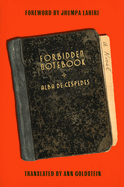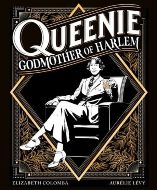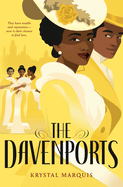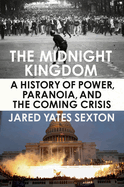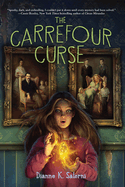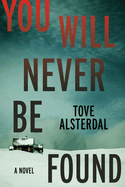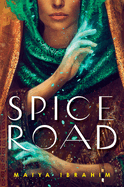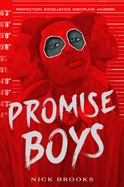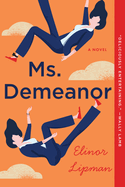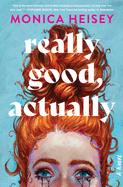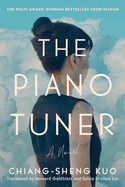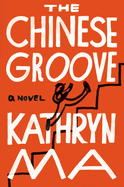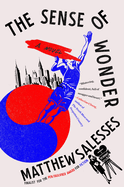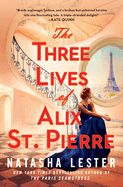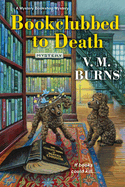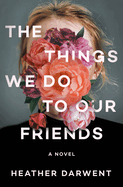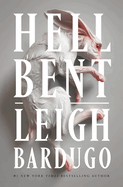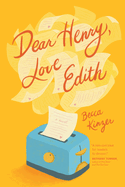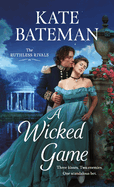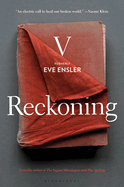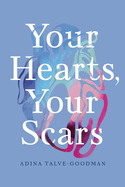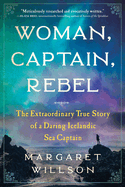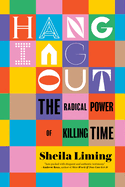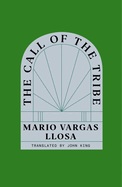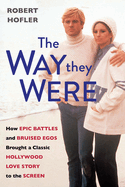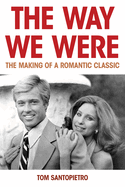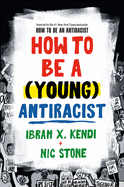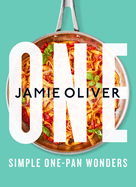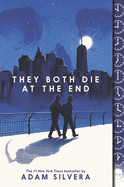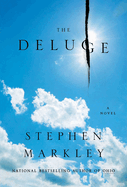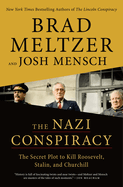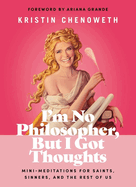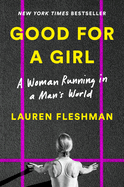Friday, February 3, 2023
This week we review Forbidden Notebook by Alba de Céspedes, first published in Italy in 1952 and translated by Ann Goldstein, "as relevant today as it was in postwar Italy"; Queenie, an "outstanding graphic collaboration" between Aurélie Lévy and Elizabeth Colomba starring 1930s Harlem legend Stephanie St. Clair; and Krystal Marquis's captivating debut, The Davenports, about four young Black women navigating love and society in early 20th-century Chicago. And so many more!
In The Writer's Life, V, the author of The Vagina Monologues formerly known as Eve Ensler, talks about her new book Reckoning. Plus: the biggest awards for youth were announced by ALA on Monday, and we spoke with Newbery Medalist and Coretta Scott King Author Award winner Amina Luqman-Dawson about her book Freewater and what these awards mean to her.
Forbidden Notebook
by Alba de Céspedes, transl. by Ann Goldstein
Times have changed for women since the 1950s, as the protagonist of Alba de Céspedes's excellent Forbidden Notebook, first published in 1952, confides to the titular diary. That title, rendered from the Italian by translator Ann Goldstein, offers a clever double meaning that encapsulates 43-year-old Valeria Cossati's predicament: she is forbidden from pursuing a more rewarding life and confides those frustrations only to a secret notebook. In November 1950, she buys the notebook--"black, shiny, thick, the type used in school"--from a tobacconist's shop. The clerk hastily gives it to her with the admonition "Hide it under your coat" in order to ensure that the guard stationed outside doesn't catch her.
The need for perpetual caution is at the center of the stories Valeria chronicles over the next six months. When she isn't changing the notebook's hiding place to make sure no one finds it, she writes of her 20-year-old daughter, Mirella, who stays out late and dates a wealthy, much older lawyer; her son, Riccardo, who harbors old-fashioned views of women's roles; Guido, her boss, with whom she's infatuated; and her banker husband, Michele, whose attempts to produce a movie script highlight his dissatisfaction with his career and his marriage. In a foreword, Jhumpa Lahiri compares de Céspedes's "radical novel" to Virginia Woolf's A Room of One's Own and says it, too, "vindicates, artfully and ardently, a woman's right to write." Forbidden Notebook is a sly indictment of marriage and generational conflict, as relevant today as it was in postwar Italy. --Michael Magras, freelance book reviewer
Discover: In this epistolary novel, originally published in 1952, a middle-aged woman in postwar Italy confides frustrations over life and family to her secret notebook.
Ms. Demeanor
by Elinor Lipman
If anyone can segue a court-ordered house arrest into romance, it's an Elinor Lipman heroine. In Ms. Demeanor, Lipman's 16th book, Jane Morgan--39-year-old Manhattan attorney (suspended) and convicted perp (gross indecency)--finds that serving her 180-day sentence in her high-rise co-op presents surprising opportunities. Outrageous but credible plot twists and snappy dialogue guide an ill-advised rooftop tryst to a happily-ever-after conclusion.
A trifecta of "man, woman, mojitos" leads to rooftop "moonbathing" then--as the "prude" watching from across Seventh Avenue claims in a 911 call--to "putting on a show." A judge sentences Jane to home confinement for "gross indecency." Jane--supported emotionally and financially by her loving dermatologist twin sister, Jackleen--turns to creating "Skinutrition" recipes for Jackleen's website. After a kind doorman, pointing to his ankle, suggests Jane meet the man in 9C, she arrives at Perry Salisbury's door bearing brownies, wondering if "two ankle monitors in the same room [would] trigger acoustic feedback." The outcome of this meeting--Perry's "crime" at his art auction house was, lawyer Jane deems, "sweet"--is an agreement that Jane will cater dinners for non-cook Perry, a plan that soon evolves into dinners-plus-benefits. The satisfactions of Jane's burgeoning culinary TikTok followers and the budding romance beg for plot complications. Reliably, witty satirist Lipman (On Turpentine Lane; The View from Penthouse B; I Can't Complain) provides. When the "snitch" with the "911 trigger-happy finger" dies suddenly, a madcap scenario ensues with the implication of Jane by the snitch's "colorful love children" (who may lack legal immigration status). This snag, dispatched with hilarious élan, precedes a conclusion likely to prompt tears of joy. --Cheryl McKeon, Book House of Stuyvesant Plaza, Albany, N.Y.
Discover: A witty romantic comedy replete with smart, sexy characters brings together protagonists who have been sentenced to home confinement in their New York high-rise co-op for specious "crimes."
Really Good, Actually
by Monica Heisey
Screenwriter and comedian Monica Heisey (Baroness von Sketch Show) finds the funny in millennial divorce misery in her debut novel, Really Good, Actually. When 28-year-old research assistant Maggie suggests to her partner of 10 years and husband of only 608 days that maybe they should get a divorce, she doesn't expect him to agree. Soon he's gone, with half their stuff and their cat, and Maggie is romantically alone for the first time in her adult life.
Conveniently forgetting that she's the one who suggested the divorce, Maggie paints herself as a victim: Jon is uncommunicative, Jon is cold, Jon took the cat, Jon is unwilling to go to a therapy session for closure. Maggie's friends gently suggest she needs therapy herself, but they're wrong. She's doing fine: really good, actually. She goes through cycles of depressive wallowing and manic activity, and eventually turns to the abyss of social media, developing a dependency that will feel familiar to anyone who feels an overwhelming compulsion to check their phone every three minutes.
Really Good, Actually isn't all misery or jokes, though. Hidden among the body dysmorphia and self-improvement montages Heisey drops the kind of lines that require a pause: "It was hard to learn traits I'd considered mine alone had been forged with or borrowed wholesale from someone else." Moments of genuine pain, joy or self-interrogation combine with dark humor to make a novel that manages to remain engaging even as Maggie slides to an inevitable rock bottom. Really Good, Actually is a coming-of-age novel for adults trying to connect in the age of apps. --Suzanne Krohn, librarian and freelance reviewer
Discover: A young divorcée stumbles through modern dating, adult friendship, mental health issues and self-discovery in this darkly funny novel about spinning out before starting over.
The Piano Tuner
by Chiang-Sheng Kuo, transl. by Howard Goldblatt and Sylvia Li-Chun Lin
Hailed for winning every major literary award in Taiwan, Chiang-Sheng Kuo's global bestseller The Piano Tuner arrives in the U.S., lyrically translated by the revered duo Howard Goldblatt and Sylvia Li-chun Lin. The eponymous piano tuner remains unnamed until nearly the book's end. That sense of unknowing--except for the shortest glimpses of clarity--permeates Kuo's enigmatic narrative.
The piano tuner was once a prodigy, but his disdainful father demanded a military career for his sons. A kind teacher, however, recognized his genius and provided him free lessons and connections. At 17, the teacher introduced him to a former student, now an international star, who suggested a public duo that never happened. Decades pass, and the prodigy has traded the uncertainty of performing for the reliable need for tuning. He returns regularly to a music studio run by violinist Emily. After Emily unexpectedly dies of cancer, her husband, Lin, must decide the fate of all the studio's pianos. He approaches the tuner with a possible business venture. The tuner, however, knows too much--about Emily, her students, even her marriage.
"I have enough self-awareness to know that I'm not the protagonist," the tuner ironically insists. And yet his pivotal observations--secrets he hoards about clandestine lovers, estranged relationships and damaged instruments--ensure he is the story's linchpin. Kuo smoothly underscores the tuner's loneliness and longing with references to the troubled lives of renowned musicians, including Franz Schubert (dead at 31), Glenn Gould (who eschewed the elite) and Sviatoslav Richter (failing eyesight). Kuo writes with sharp erudition--about music, history, instruments, geography--creating a multivocal repertoire spotlighting displaced love and unfulfilled opportunity. --Terry Hong, BookDragon
Discover: Chiang-Sheng Kuo's enigmatic Taiwanese import deftly examines the relationship between a piano tuner, a dead violinist and her businessman husband.
Please Report Your Bug Here
by Josh Riedel
Josh Riedel's inventive debut novel launches readers into a world of tech startups eerily reflective of the digital media era that exercises outsized influence on what people do and how they think. Set in San Francisco, Please Report Your Bug Here opens with a note from former DateDate app employee Ethan Block, who swears his story is "not imagined, I promise you that--at least not to me. All that's changed are the names. Everything else is true." From there, Ethan traces the shifting tech landscape from the dating app's startup days, the bug that sends users temporarily into an alternative world, the acquisition of DateDate by the Corporation, and the rest of their looping and unraveling story.
Riedel writes here from experience, drawing upon his early role at Instagram but managing to maintain a critical distance. And if another close look at a social media startup were all this novel were about, it might not warrant much attention. Thankfully, that's not all Riedel is up to. The book pushes readers to see the ways both art and technology construct and disrupt reality, forcing an examination of every experience, an insistence that humans are always in the process of discovering what is true. These more abstract and infinitely more interesting questions are the heart of Please Report Your Bug Here, and readers will find much to think on as they are compelled to find out what happens next. --Sara Beth West, freelance reviewer and librarian
Discover: Josh Riedel's inventive debut launches readers into a world of tech startups and media apps while also tackling art and reality and the possibility of portals to alternative worlds.
The Chinese Groove
by Kathryn Ma
In a buoyant and heartfelt second novel, Kathryn Ma (The Year She Left Us) continues to explore the varied and wonderful landscape of San Francisco. The Chinese Groove is the picaresque story of 18-year-old Zheng Xue Li's ambitious journey from China's Yunnan Province to settle with relatives in California. He has three major goals in mind: "I'd like to get better acquainted with our American relatives... find a pretty Chinese American wife... [and] make a lot of money." To do all this, Xue Li (Shelley, to most English speakers) lives by the Chinese groove, a philosophy of understated optimism that suggests one's needs will be met, just in time, and often in unexpected ways.
Xue Li's love of English idioms adds humorous effervescence, and his optimism imbues The Chinese Groove with an irresistibly bittersweet bite. From the moment he arrives in the U.S., nothing goes according to plan. The uncle he's supposed to stay with, Ted, is hardly the wealthy business tycoon that extended family claimed him to be, and the household Xue Li steps into trembles with secrets far deeper and darker than anyone ever let on. As these distant relatives get to know each other better, the newfound clarity among them brings first pain, then hard-won healing, with Xue Li discovering the true value of family, love and fortune along the way.
Ma has a gift for crafting lovable characters in challenging situations, and she places them in a vibrant Northern California setting. The Chinese Groove is a refreshing story of unsinkable perseverance and familial devotion, sure to unlock new stores of optimism for any reader. --Dave Wheeler, associate editor, Shelf Awareness
Discover: In this heartening novel of youthful optimism, an ambitious Chinese immigrant seeks to build a life for himself among distant relatives in the city of San Francisco.
The Sense of Wonder
by Matthew Salesses
In The Sense of Wonder,PEN/Faulkner finalist Matthew Salesses (Disappear, Doppelgänger, Disappear; Craft in the Real World) spotlights three basketball players at different points of their careers--starting out, at the pinnacle, and over--along with a Korean American television producer who's dating the rookie.
Won Lee is a Princeton-educated, all-Ivy conference MVP point guard now with the New York Knicks. Perhaps his name was prescient: he's won enough to be the one and only Asian American in the NBA. He's playing with his idol "Powerball!" (né Paul Burton), who's Black--but then Powerball! gets hurt. While Powerball! is out, Won dominates for seven straight victories. Powerball!'s return might be great for the fans, not so for "the Wonderboy."
Watching Won and Powerball! from the stands is ESPN reporter Robert Sung, who was Powerball!'s high school teammate, destined for a Division I scholarship until a career-ending knee injury. Off the court, Sung introduces Won to Carrie Kang, a Korean American TV producer working to bring K-dramas to U.S. masses, and more Asian American screen representation overall.
Won's career hinges on an elusive contract his bigoted coach dangles but won't produce. Won and Powerball! get caught in the media's Asian/Black divides. Sung is never quite trustworthy about safeguarding what is on and off the record. Salesses moves, fakes and pivots his narrative with practiced, sly expertise, all while deftly exposing pervasive racism and sexism in two inequitable industries. And yet, he also manages to impart an easy, welcoming bluntness: "What Won made Asian Americans feel was mimetic wonder." Social ills notwithstanding, who can argue with that? --Terry Hong, BookDragon
Discover: In this intricate novel, Matthew Salesses slyly exposes the rise--and pivot--of the only Asian American player in the NBA.
The Three Lives of Alix St. Pierre
by Natasha Lester
The Three Lives of Alix St. Pierre, Natasha Lester's gripping eighth novel, stitches together haute couture, international espionage and complicated emotions in post-World War II Paris. Alix St. Pierre, orphaned at age 13, has spent her life fitting, albeit uneasily, into American high society. She distinguishes herself during the war by doing excellent work in intelligence, but she's permanently haunted by one failed mission. As Alix works to help Christian Dior launch his fashion house in 1947, her wartime nemesis resurfaces, along with several other players from that mission. To capture her enemy and put her conscience to rest, Alix undertakes a dangerous cat-and-mouse game with the man she knows only as La Voce.
Lester (The Riviera House; The Paris Secret; The Paris Seamstress) creates a razor-sharp heroine in Alix: brilliant, determined, often ruthless, but driven by a deep sense of justice. She exposes the sexism of the Office of Strategic Services and other government agencies during the war, while highlighting the contributions of working-class women who used their humble positions in society to great effect. In contrast, Lester also sweeps readers into the luxury of Dior's New Look, with sumptuous descriptions of both the gowns and the characters who populate the fashion house. No less compelling are her sharp renderings of wartime privation, including that of the Italian partisans whom Alix risks her career, repeatedly, to help. Shifting between three timelines--before, during and after the war--Lester weaves a heartbreaking, propulsive narrative of calculated risks, impossible choices and the faint, stubborn hope of redemption and love. --Katie Noah Gibson, blogger at Cakes, Tea and Dreams
Discover: Natasha Lester's propulsive eighth novel combines fashion, espionage and a quest for justice in postwar Paris.
Mystery & Thriller
You Will Never Be Found
by Tove Alsterdal, transl. by Alice Menzies
At one point in Swedish crime novelist Tove Alsterdal's You Will Never Be Found, a character observes that a cabin contains "bookshelves full of cheap American thrillers." This may prompt regular readers of Nordic noir to wonder: Is there even such a thing as "cheap Scandinavian thrillers"? Adeptly written and plotted, with in-depth characterizations and rich topography, You Will Never Be Found is yet another fine contribution to the redoubtable genre.
The novel, translated from the Swedish by Alice Menzies, is the second in a series set on Sweden's High Coast and built around police assistant Eira Sjödin. This time around, the Kramfors Police District loans out Eira to Sundsvall's Violent Crimes Unit, which is investigating the murder of a middle-aged man whose body was found locked in the basement of an abandoned house, two fingers of one hand recently removed. The police are leaning into the organized-crime angle when Eira discovers that, a year earlier, another middle-aged man was kidnapped and locked in a basement. That man, however, escaped with his life--and his fingers.
As Eira, single and in her 30s, looks for a link between the two kidnappings, she has the odd affair and tends to her dementia-suffering mother. Alsterdal (We Know You Remember) rewards attentive readers, threading her novel with blink-and-you'll-miss-them details that end up being vital to the investigation. You Will Never Be Found has a roving perspective but mainly sticks with Eira, for whom the stakes are raised with the disappearance of someone important to the case and, she's surprised to realize, to Eira herself. --Nell Beram, author and freelance writer
Discover: In the adeptly written and plotted second novel in a series set on Sweden's High Coast, Eira Sjödin returns to investigate the murder of a man whose body was found in an abandoned house.
Bookclubbed to Death
by V.M. Burns
Owning a bookstore specializing in mysteries fulfills a lifelong dream for Samantha ("Sam") Washington, who returns in the eighth entry in V.M. Burns's Mystery Bookshop series, the light and entertaining Bookclubbed to Death. As amateur sleuth Sam frequently discovers, intrigue and jealousy are also shelved among the hottest novels. When a tornado damages the library in North Harbor, Mich., Sam offers to host the Mystery Mavens Book Club's next meeting at her Market Street Mysteries Bookshop. It seems a natural fit, given that her store specializes in mysteries. She even offers the Mystery Mavens a discount on books.
However, Sam didn't expect to immediately encounter the wrath of prominent book reviewer Delia Marshall, the club's leader. The arrogant, imperious, self-centered Delia threatens to sue, claiming Sam's sweet poodles attacked her--after she kicked one. Later that night, Delia is found dead in the bookstore, an expensive, heavy Agatha Christie tome as the murder weapon. Police quickly suspect Sam--it's her store and her book--but Sam finds no shortage of suspects: Delia was a serial blackmailer, targeting club members, authors and local residents. The sleuthing team--including Nana Jo, Sam's sharp grandmother; "the girls," Nana Jo's friends from her retirement community; and Sam's fiancé, Frank--lean on their contacts and gossip to find the real killer.
Burns's affinity for storytelling and characterization energizes Bookclubbed to Death. Although the plot occasionally strains credibility, Burns (Killer Words, A Tourist's Guide to Murder) keeps the suspense on point. Delia's cruelty is borderline cartoonish, but Sam and her friends are a delightful bunch whose company is most enjoyable. --Oline H. Cogdill, freelance reviewer
Discover: A bookstore owner is suspected of murdering a blackmailing book reviewer in this light, entertaining cozy.
The Things We Do to Our Friends
by Heather Darwent
A student seeking to reinvent herself at university discovers that the clique she thinks is her chance might be even more dangerous than the secret she is trying to outrun in The Things We Do to Our Friends, Heather Darwent's tantalizingly sinister debut thriller. Clare arrives alone in Edinburgh with a focus as much on escaping an incident in her past (not disclosed until late in the novel) as on her studies. She knows she'll need to make connections with the sort of people who represent what she would like to be, and an encounter at the bar where she works with an unusually friendly group of privileged students, led by beautiful queen bee Tabitha, changes everything. It is not long until she even finds herself with an invitation to join them on a holiday to Tabitha's mother's house in France. Once there, Tabitha presents Clare with a business proposition, and when Clare hesitates to agree, she discovers that the others know about her past.
Darwent slowly metes out details of Clare's past as well as hints about her future--Clare retrospectively narrates, chapter one opening with "I've decided to look back and make some kind of sense of it all"--as Tabitha takes her project in increasingly darker directions. Readers will be on the edge of their seats with this gripping story of codependency and obsession, and fans of Kate Lowe's The Furies and J.T. Ellison's Good Girls Lie will devour this--and eagerly await more from Darwent. --Kristen Allen-Vogel, information services librarian at Dayton Metro Library
Discover: A young woman's ambitions threaten to reveal her deepest secrets in this gripping thriller about friendship gone sour.
Science Fiction & Fantasy
Hell Bent
by Leigh Bardugo
In Hell Bent, the thrilling, complex sequel to Ninth House, Grishaverse creator Leigh Bardugo (Demon in the Wood; Six of Crows; Shadow and Bone) ushers readers back into her dark academia version of Yale University. Alex Stern isn't the average college sophomore, even by Yale's standards, and her problems qualify as exceptional. As the new Virgil of Lethe House, which is a secret society that oversees Yale's other societies' use of magic, she observes rituals to ensure safe protocols are practiced. The Lethe board has forbidden her from attempting to rescue from hell her predecessor and mentor, Darlington, but she has to try. She and Pam Dawes, Lethe's "research arm," search for a path called the Gauntlet, which requires four murderers to open. They may get into hell, but they have no guarantee they'll get back out and no way to ensure they aren't followed. Because "people weren't meant to move between this life and the next and back again," they also run the risk of bringing back a changed Darlington. Unwanted faces from Alex's criminal past resurface along the way, and she will need new allies to survive the fight ahead.
Bardugo shifts from the dark world-building mode of the first novel to an action-heavy plot filled with horror elements. An ensemble cast of familiar and fresh characters brings new depth and much-needed levity to balance the world-in-peril spine tingles. Readers should start with The Ninth House for best results. Deepening relationships and a cliffhanger ending will leave them desperate for book three of the Alex Stern series. --Jaclyn Fulwood, blogger at Infinite Reads
Discover: The second novel set at the dark-fantasy version of Yale University from Grishaverse creator Leigh Bardugo finds Alex Stern on a rescue mission to hell.
Romance
Dear Henry, Love Edith
by Becca Kinzer
Rom-com readers will fall in love with Becca Kinzer's delightfully sweet first novel, Dear Henry, Love Edith. Edith Sherman is a recently widowed, 30-year-old nurse from Pittsburgh, Pa. Her short marriage was rife with problems and, now that her husband is gone, his brother, Steve, has become extremely overbearing. In order to get on with life and escape Steve's suffocating attention, Edith signs up to do volunteer work. While waiting to "fly halfway around the world to a remote South African village," Edith takes an interim nursing position at a crisis center in the small town of Westshire, Ill. A friend of a friend generously offers the home of her uncle: Henry Hobbes is a set-in-his ways bachelor. He recently took over his family's construction and painting business but badly injured his knee. Thus, the temporarily inaccessible upper floor of his house becomes Edith's provisional home for a few weeks.
Henry and Edith never meet or see each other. They come and go, working different schedules, and each leaving notes for the other that gradually reveal who they are and the story of their lives. Unbeknownst to both of them, they regularly cross paths in town and are attracted to each other--although completely unaware they are actually living under the same roof. Exactly how and when will they finally come to this revelation? This bright, whimsical, mistaken-identity story of two lovable characters will win the hearts of rom-com readers who enjoy quirky, small-town charm. --Kathleen Gerard, blogger at Reading Between the Lines
Discover: Dear Henry, Love Edith is a whimsical, mistaken-identity rom-com about two down-on-their-luck 30-somethings who don't realize they are actually living under the same roof.
A Wicked Game
by Kate Bateman
British antiques expert and author Kate Bateman (A Daring Pursuit; A Reckless Match) returns readers to the feud between the Montgomery and Davies families in A Wicked Game, the third entertaining entry in the Ruthless Rivals series. Cartographer Harriet Montgomery and rich, titled sea captain Morgan Davies were childhood frenemies. Neither realized their mutual attraction as teenagers, and as adults, they continue their habit of verbal fencing and "gleeful mutual animosity." It isn't until Morgan returns from nearly two years at sea with the Royal Navy, however, that he's determined to claim Harriet as his wife: it seems absence does make the heart grow fonder. Nevertheless, given the longstanding feud between their families, Morgan knows he can't simply declare himself and ask for her hand in marriage. Harriet is a woman who deserves wooing, and he's committed to sweeping her off her feet: first with kisses and daring challenges--then with a seduction that fills them both with desire. While each struggles to come to terms with the sea change in their relationship, an enemy from Morgan's past is hunting them. Finding the villain and staying alive will take all of their resourcefulness.
Wonderfully romantic and deeply sensual, this excellent plot centers around the lengths to which two fiercely independent people will go in order to keep from risking rejection. The cheeky, witty banter between Harriet and Morgan is a delight and is sure to have readers smiling. Although this is the third novel in the series, it stands on its own--and readers will surely want to read the earlier entries. --Lois Dyer, author and reviewer
Discover: A handsome sea captain woos and wins a fiercely independent lady while fending off a threat from a mutual enemy.
Graphic Books
Queenie: Godmother of Harlem
by Aurélie Lévy and Elizabeth Colomba, illus. by Elizabeth Colomba
Duke Ellington, W.E.B. Du Bois, Dutch Schultz, Lucky Luciano: perhaps because they were men, their legacies have long survived their deaths. Too often missing from this notable New York roster is Stephanie St. Clair, a Harlem legend who ran the numbers racket in the 1930s. Aurélie Lévy and Elizabeth Colomba reclaim her history in Queenie, an outstanding graphic collaboration. In 1933 when Prohibition finally ended, St. Clair emerged from prison (not her first stint, nor her last) and returned to her posh apartment and Harlem society. In addition to restoring her illegal money-making empire, she also looked out for her fellow Black citizens--making loans and ensuring justice when due, especially when a little girl was involved. When St. Clair herself was young a quarter century earlier in Martinique, she learned far too early about vicious abuses by the wealthy. Her mother's death and her determination for a different life eventually led her to Harlem, where a trusted few people kept her safe as she expanded her influence.
Colomba, who shares St. Clair's Martinique heritage, is a lauded artist known especially for her visual reclamations of Black women in historic settings. She applies that energy--and stunning art--to sweeping, black-and-white panels. Together with French writer and filmmaker Aurélie Lévy, Colomba firmly places St. Clair--a ruthless businesswoman (but surprisingly caring human)--center stage. Lévy and Colomba effortlessly toggle St. Clair's narrative between the 1930s and her tumultuous coming-of-age decades earlier. Misogyny and racism are never far away, but St. Clair survives and thrives with unnerving control and lasting power. --Terry Hong, BookDragon
Discover: Elizabeth Colomba and Aurélie Lévy create an extraordinary graphic homage to the often-overlooked 1930s Harlem mobster Stephanie St. Clair.
Food & Wine
The Vegetarian Reset: 75 Low-Carb, Plant-Forward Recipes from Around the World
by Vasudha Viswanath
The Vegetarian Reset: 75 Low-Carb, Plant-Forward Recipes from Around the World, Vasudha Viswanath's creative collection of savory and sweet dishes inspired by her international palate, will delight readers who want to prioritize nutrition-rich ingredients in their diets without compromising taste and sensory appeal. By reimagining traditional dishes into low-carb, vegetable-centric versions of themselves, Viswanath breathes new life into favorites such as shepherd's pie, lasagna, fried rice, paella, risotto and pad thai. A robust desserts section features Viswanath's signature Mango Cheesecake, Banana Soufflés and Hazelnut Brownies. Nutritional information is thoughtfully provided for each recipe.
Chickpea flour is one of Viswanath's secret weapons; it takes center stage in "Breads," the opening chapter. Zucchini bread, French Riviera-inspired "socca" pizza and Ethiopian injera bread are some of the delicious foods she transforms with this special ingredient. In "Pasta and Noodles," Viswanath, a self-described foodie, deploys vegetable noodles made from hearts of palm, edamame, zucchini and daikon radish as "humble carriers" of tasty, tangy sauces. To maximize flavor and enhance dishes, she often adds an Indian twist to her recipes with spice blends, such as in her Curried Lentil Mushroom Bolognese.
A former hedge fund professional turned cookbook entrepreneur, Viswanath is the founder of We Ate Well, an online newsletter dedicated to vegetarian cooking. The recipes in The Vegetarian Reset are enhanced by gorgeous photos that showcase the abundant variety, adventurous spirit and focus on flavor that are at the heart of a foodie sensibility. --Shahina Piyarali, reviewer
Discover: The Vegetarian Reset is a low-carb, vegetable-focused and nutrition-rich culinary journey around the world through flavorful, creative dishes that are crafted with an Indian-inspired flair.
Biography & Memoir
Reckoning
by V (formerly Eve Ensler)
The writer and activist V, formerly known as Eve Ensler (The Vagina Monologues; The Apology), had "moved from country to country, speech to speech, play to play" for years. But when the world went into lockdown, she was confronted with the quiet of her home and the roar of her own mind. The result is Reckoning, a collection of poems, miniature plays, essays, letters, previously published articles and photographs that demand as much unflinching strength from the reader as the author. The ultimate impact of the book is occasionally startling, often profound.
V writes in Reckoning's opening pages, "It's only in our willingness to face the music, walk through the fire, confront the truth head-on that we are born into ourselves, one another, and a livable future." She leads by example, plumbing the depths of her memories for the most aching material: her father's abuse; the apathy and agony of her mother; the tumult and pleasures of her past romances; the friendships she has forged across continents; and her life-long struggle to make peace with her own body. "Writing saved me from suicide, from madness," she tells readers.
At the heart of Reckoning is violence--particularly against women--and the chaos it sows should it go unaddressed, never confronted and never healed. In its moments of celebration, especially, Reckoning is as stirring as a chorus. V's non-media enterprises (One Billion Rising and V-Day, both global campaigns to end violence against women; and City of Joy, a Congo-based center for female survivors of violence) represent the public culmination of her personal efforts--the result of her own reckoning--and that is, ultimately, what resonates best in this collection. --Lauren Puckett-Pope
Discover: V (formerly Eve Ensler) movingly demonstrates that resolution cannot be made without healing, healing without forgiveness, forgiveness without apology, and apology without reckoning.
Your Hearts, Your Scars
by Adina Talve-Goodman, Sarika Talve-Goodman and Hannah Tinti, editors
Adina Talve-Goodman was the managing editor of One Story literary magazine in Brooklyn, N.Y. She had a heart transplant at age 19, necessitated by one of several congenital conditions. In seven poignant interlocking essays, assembled posthumously by her sister and a colleague, Talve-Goodman ponders the precariousness of life for the chronically ill and disabled.
A version of the opening essay, "I Must Have Been that Man" won Bellevue Literary Review's Nonfiction Prize. Talve-Goodman remembers that, one day during college, she came across a disabled man who hung out near her favorite café and commented on her reading. His electric wheelchair had shorted in the rain and toppled; thanks to her new heart, she was strong enough to right the chair and try to help him up. Uncanny encounters recur in later essays: one in the second person, in which she's cornered by a man whose wife died of heart failure; another where she frets she's being ungrateful to her donor if she forgets to take her anti-rejection pills on time, but is reassured by meeting someone who had a heart transplant 14 years before.
When she was diagnosed with a rare lymphoma caused by immunosuppressant drugs, Talve-Goodman was attending the Iowa Writers' Workshop. She died at age 31 in 2018. Sarika Talve-Goodman's introduction discusses Adina's legacy and the compiling of this book; Hannah Tinti's afterword details the fellowship that One Story awards in her honor, to an early-career writer from a marginalized group. This bittersweet book is a potent reminder: life and health are fleeting, so it's important to celebrate every milestone and pinpoint the moments of human connection that provide meaning. --Rebecca Foster, freelance reviewer, proofreader and blogger at Bookish Beck
Discover: A posthumous collection gathers seven poignant autobiographical essays about living joyfully and looking for love in spite of chronic illness.
History
Woman, Captain, Rebel: The Extraordinary True Story of a Daring Icelandic Sea Captain
by Margaret Willson
Anthropologist and researcher Margaret Willson spins a real-life tale as compelling as any fishing yarn in her third nonfiction book, Woman, Captain, Rebel. Willson's fascinating biography of Captain Thurídur Einarsdóttir (1777-1863) tells the true story of a female Icelandic sea captain who defied gender conventions throughout her long life. With elements of nautical and feminist history, as well as an account of how Einarsdóttir solved a high-profile crime in her village, Willson's account breaks narrow genre conventions in the same way Einarsdóttir herself defied the expectations placed on women of her time and place.
Willson (Seawomen of Iceland) begins by recounting a visit to Stokkseyri, Einarsdóttir's home village, and her subsequent discovery of a set of newspaper articles detailing Einarsdóttir's life, relationships and career. She sets the scene of Einarsdóttir's family home, recounting her adventures as a child (even then she loved to fish and often wore trousers). Willson also shares the tragedies of Einarsdóttir's life, including the death of her daughter, Thórdís, and several occasions when she lost her home or assets and needed to start over. Throughout the narrative, Willson emphasizes the courage, resilience and integrity of her central character. In recounting Einarsdóttir's adventures, she also calls into question the male-centered images of life at sea, and the still-persistent bias against women participating in physically demanding trades such as deep-sea fishing.
With a clear, compelling narrative voice, Willson illuminates the life of an extraordinary woman and brings rural Iceland to life for her readers. --Katie Noah Gibson, blogger at Cakes, Tea and Dreams
Discover: Anthropologist Margaret Willson brilliantly illuminates the life of a female Icelandic sea captain who was also a community leader.
Political Science
The Midnight Kingdom: A History of Power, Paranoia, and the Coming Crisis
by Jared Yates Sexton
To observers reassured about the health of American democracy after the 2022 U.S. midterm elections, Jared Yates Sexton's blunt and provocative The Midnight Kingdom may come as an unwelcome splash of cold water. In this survey of the history of Western civilization that begins in first-century Rome and spans nearly 2,000 years, Sexton, a political analyst and podcaster, explores "the means by which power shields and hides itself." He argues that it does so chiefly through deceit and paranoia-inducing conspiracy theories that have remained remarkably consistent across cultures and historical eras, and that those tactics are flourishing with particular virulence today.
In the 20th century, Sexton's principal bogeyman is neoliberalism, a philosophy that in the United States has been "eating away at the authority of the state, systematically transferring power from the federal government to the domain of the market and corporations." The consequence of its dominance, he contends, has been to create a permanent underclass whose rage can be deflected from its true oppressors while providing the political support necessary to maintain those oppressors in power.
In crisp and efficient prose, he discourses on subjects as diverse as the power of the Catholic Church in the Middle Ages, the age of colonialism, or 20th-century American politics. His opinions will elicit enthusiastic assent from some readers and vigorous disagreement from others. No one reading this book would ever accuse him of unwarranted optimism, but he does envision "a new faith that transcends the divisions of old and centers on a belief and trust in one another." The outcome of this clash will shape the next turn of history's wheel. --Harvey Freedenberg, freelance reviewer
Discover: Jared Yates Sexton offers a sobering historical perspective on the forces pushing the West toward authoritarianism.
Social Science
Hanging Out: The Radical Power of Killing Time
by Sheila Liming
In the introduction to Hanging Out, Sheila Liming defines her book as "partly a manifesto and partly an invitation to come meander" and, based on the title, readers might assume it is mostly meandering: a loose celebration of the kind of unstructured gatherings that might have been common once but are now rare in most adult lives. While Liming (What a Library Means to a Woman) does celebrate these open-ended social interactions, her writing does not meander; instead, it straddles the line between academic and accessible, ultimately creating a tightly argued, brilliantly written book that will be discussed at the best dinner parties and back-porch hangouts.
Organized around situations where hanging out might occur ("at parties," "on the job"), the book draws upon Liming's knowledge in a wide range of fields, including literature, philosophy, theory and culture. This depth of field is what sets Hanging Out apart from similar offerings, those explaining how to be happier or more productive or organized.
Liming also weaves in stories and experiences from her own life, which has seen the transition from fully analog interactions to the digital world in which everyone is now immersed. Not at all a polemic against technology, however, Hanging Out helps readers see nuance: "Digital devices and technologies make that other kind of hanging out easier, but they also strip it of the experiences and particularities of place." Throughout, Liming encourages those deeper shades, found most often in the company of people we care about and in the time we set apart for each other. --Sara Beth West, freelance reviewer and librarian
Discover: Smart and accessible, Hanging Out encourages deeper shades of connection, found most often in the company of people we care about and in the time we set apart for each other.
Essays & Criticism
The Call of the Tribe
by Mario Vargas Llosa, transl. by John King
Nobel Laureate Mario Vargas Llosa (Harsh Times; The Discreet Hero; The Dream of the Celt) offers a full-throated defense of liberalism--the political philosophy predicated upon the rights of the individual--in his essay collection The Call of the Tribe, translated from the Spanish by John King. The "spirit of the tribe" is the term that philosopher Karl Popper used to describe what Vargas Llosa calls "the irrationality of the primitive human being" who yearns to be subordinate. Instead, liberalism is about the primacy of the individual over the collective, an ethos Vargas Llosa espouses. In this collection of eight essays, he offers a defense of this standpoint and celebrates the works of seven intellectuals, all of them men, who shaped his beliefs.
In addition to Popper, Vargas Llosa considers Adam Smith's book The Wealth of Nations and identifies egotism as "the motor of progress"; José Ortega y Gasset, who lambasted the masses for "abdicating their sovereign individuality"; Friedrich August von Hayek, who believed "only individualism, private property, and market capitalism guarantee political freedom"; Raymond Aron, self-described "incorrigible liberal"; Isaiah Berlin and the concept he called "contradictory truths"; and "thoughtful and iconoclastic" Jean-François Revel. Even audiences who read Vargas Llosa's claim that the free market "is what brings material development and progress" and would respectfully counter that it can also be capricious in reversing those gains would have to concede that he cogently argues and vigorously defends his positions. The essays may not persuade, but they're beautifully written; these are intelligent, demanding pieces from a writer always worth reading. --Michael Magras, freelance book reviewer
Discover: Nobel Laureate Mario Vargas Llosa celebrates the work of seven intellectuals who shaped his belief in political and economic liberalism.
Performing Arts
The Way They Were: How Epic Battles and Bruised Egos Brought a Classic Hollywood Love Story to the Screen
by Robert Hofler
Robert Hofler (Money, Murder, and Dominick Dunne; Sexplosion) skillfully reconstructs the making of the 1973 classic romantic drama The Way We Were and, though he unearths every bit of juicy gossip and turmoil on the set, The Way They Were never reads as mean-spirited. The problem with this film production was almost every creative position was filled with strong-willed individuals, and none of them could agree with each other. Wildly successful producer Ray Stark was constantly at odds with director Sydney Pollack, and Barbra Streisand loved Arthur Laurents's original screenplay but knew he was a prickly collaborator. And on the sidelines was Robert Redford, who didn't like Stark or his character in the screenplay and feared being overpowered by Streisand.
Streisand and Redford (both interviewed for this book) exuded chemistry, but their working styles were polar opposites. "Barbra likes lengthy rehearsals and multiple takes," said Pollack. "Redford is better in his early takes. After that he just gets bored." Redford also refused to say the line "It'll be better this time" prior to the film's second sex scene because, according to Hofler, "Redford was never bad in bed. So how could Hubbell be?" Hofler also reveals Redford wore two athletic supporters during that initial sex scene, because he'd heard Streisand often had romantic relationships with her leading men and wanted to protect himself.
Hofler also deftly explores how Laurents used his own volatile but loving relationship with Tom Hatcher, his life partner, as a basis for the two main characters in the film. Film buffs will love this deliciously dishy look at the creation of a classic tear-jerker. --Kevin Howell, independent reviewer and marketing consultant
Discover: The Way They Were is a deliciously gossipy tale of how clashing egos and temperaments produced the 1973 crowd-pleasing tear-jerker The Way We Were.
Art & Photography
The Way We Were: The Making of a Romantic Classic
by Tom Santopietro
Moviegoers made The Way We Were the fifth highest grossing film of 1973, but Tom Santopietro's briskly paced and authoritative retelling of the film's journey from original screenplay to blockbuster reveals that the experience was fraught with conflicts. Santopietro (The Godfather Effect; Why To Kill a Mockingbird Matters) excels at insightful and razor-sharp critiques and straightforward reportage, incorporating a fine mixture of original sources (including interviews with Barbra Streisand, James Woods and Alan Bergman) and previously published material.
The making of The Way We Were is a study of steel-willed professionals with remarkably different goals. Producer Ray Stark wanted a crowd-pleasing love story. Screenwriter Arthur Laurents wanted to tell a political tale of the Hollywood Red Scare, the blacklist that resulted from it and how it destroyed a marriage. Streisand wanted to stretch as an actress and loved Laurents's script, but director Sydney Pollack knew the only way to convince Robert Redford to star opposite her was to beef up his role by changing the script. Seven other uncredited writers (including Dalton Trumbo, Paddy Chayefsky and Francis Ford Coppola) worked on the unwieldy script. After its sneak preview, Pollack and editor Margaret Booth cut 15 minutes from the film. Santopietro masterfully lays out all the cuts that weaken the film's logic (which can be found on the film's DVD extras) but played better for mass audiences. He also does an excellent job in one chapter ("The Good, the Great, and the What-Were-They-Thinking") going through the film, scene by scene, with his astute critical eye. Santopietro's book is a fascinating look at how troubled film productions can sometimes produce celluloid gold. --Kevin Howell, independent reviewer and marketing consultant
Discover: Tom Santopietro delivers a comprehensive, engrossing look at the volatile production of the film The Way We Were, just in time for its 50th anniversary.
Children's & Young Adult
The Davenports
by Krystal Marquis
Krystal Marquis's debut, The Davenports, is the captivating story of four young Black women navigating love and society in early 20th-century Chicago.
The formerly enslaved William Davenport built a successful and worldwide business. Now, in 1910, William is the patriarch of a family that can afford a cushioned life in Chicago's Freeport Manor. William's 19-year-old middle daughter, Olivia, has met the perfect suitor and is ready to fulfill her duties as a loving wife and host of dinner parties. Until, that is, she meets a charming traveling lawyer. Youngest daughter Helen, who would much rather tinker with cars than get married, surprises everyone--herself included--by falling in love with the one man she shouldn't. Olivia's best friend, Ruby, is being pressured by her family to marry the eldest Davenport and heir to the fortune, John, but her heart belongs to another. Amy-Rose, childhood friend-turned-servant to Olivia and Helen, dreams of opening her own business and marrying John herself.
Marquis delivers a stellar, beautifully written and historically accurate YA novel, inspired by the real-life story of C.R. Patterson, that explores the Black Chicago community of the early 1900s. The novel, broken up into chapters from each character's point of view, displays a series of intertwined relationships as the young women navigate gender norms, love, familial expectations, classism, race and the all-too-recent history of slavery. The Davenports is a swoon-worthy novel that offers giddy romance and transports readers to fancy balls while keeping tension high as each story ends on a cliffhanger. --Natasha Harris, freelance reviewer
Discover: In this swoon-worthy YA romance, four young Black women in 1910 Chicago navigate societal norms, find love and work toward their dreams.
The Carrefour Curse
by Dianne K. Salerni
The Carrefour Curse, a darkly comic supernatural mystery by Dianne K. Salerni (Eleanor, Alice, and the Roosevelt Ghosts), begins with "a quiet but disgusting bit of magic."
Garnet Carrefour's mother, Emerald, has been estranged from her family since before Garnet was born. The now 12-year-old knows she and her mother have magic in their veins--they hear and speak to stones to coax out the magic within. When Garnet begins vomiting frogs, though, mother and daughter must return to the family home, Crossroad House, for help. There they find an eclectic group of relatives, each with their own magical gifts and talents, living together and waiting on the impending death of current head of the family Jasper, Emerald's feared grandfather. As Garnet gets to know her relatives, she learns about the root of their family's magic and the curse that brings "the bane of pestilence and plague" to Carrefours in the days before a family leader dies. Soon, the house itself seems to be using Carrefour magic to reveal family secrets to Garnet, causing her to wonder if she could find a way to stop the curse.
Inspired by the TV show Dark Shadows, The Carrefour Curse is an inventive take on the supernatural that skillfully blends drama, humor, magic and mystery. Salerni's large cast of characters is delightful and each family member is enough of a rounded individual that readers should easily keep track of them all. The puzzle, spook factor and complex family dynamics make this a perfect book for upper middle-grade readers and fans of The Addams Family. --Kyla Paterno, freelance reviewer
Discover: Twelve-year-old Garnet seeks the secrets of her estranged family to break a family curse and save them all in this darkly comic supernatural family mystery.
Spice Road
by Maiya Ibrahim
Spellbinding magic, lush description and whirlwind action define Maiya Ibrahim's YA debut, Spice Road.
Seventeen-year-old Imani, Qalia's youngest Shield, is tasked with defending her country's walls from a "never-ending onslaught of monsters," which include djinn, ghouls and sand serpents. Shields awaken their magical abilities by imbibing misra (the Spice gifted by the Great Spirit) in a daily tea ceremony. But misra and the city of Qalia itself are meant to be kept secret from the outside world. When Imani learns brother Atheer, whom she thought dead, may have shared the existence of both with outsiders, she knows she must find him. Rival Shield Taha, with a mysterious directive to protect Qalia's secrets, leads the mission, from which Imani fears Atheer will be brought home in chains. Imani will need to use her magical affinity for steel, as well as the djinni she has--illegally--bound to her dagger, to find Atheer before Taha does. Secrets have been at the core of Imani's worldview but, like her brother before her, the farther Imani journeys, the closer she believes she is getting to truth.
Ibrahim's addictive fantasy takes place in an Arabian-inspired land and depicts a close-knit society that clings to solitude and a strict adherence to rules. In Imani, she crafts a sheltered warrior whose worldview expands philosophically as it does geographically; readers will find much to admire in this powerful young woman who learns that thinking for herself is as vital as the magic she wields. This first book in a series should attract Black Panther fans and readers of epic fantasy alike. --Lynn Becker, reviewer, blogger, and children's book author
Discover: Spellbinding magic, lush description and whirlwind action define Maiya Ibrahim's addictive YA debut.
Promise Boys
by Nick Brooks
Three students with public grudges and no alibis become prime suspects when the principal of their all-boys charter school turns up dead in the gripping and propulsive social critique Promise Boys by Nick Brooks.
Urban Promise Prep seems perfect on paper, but Principal Moore runs the regimented Washington, D.C., charter school with an iron fist and increasingly erratic behavior. After Moore is shot dead at his desk, the police focus on three students serving detentions that afternoon: hot-tempered lyricist J.B.; basketball star jokester Trey; and loyal aspiring chef Ramón. Each of the boys maintains his innocence and, with help from friends, they combine efforts to investigate Moore's murder, hoping to identify the real killer before one of them is charged for the crime.
The whodunit untangles in a dynamic format with short chapters that feature frequent temporal shifts, and it splices the three boys' perspectives among other media such as anonymous e-mails and news stories. Because each boy is seen--and judged--by his fellow suspects, readers engage in a layered process of evaluating assumptions and biases throughout the community. This cinematic thriller deftly entertains readers while leveling a sharp indictment of society's mistreatment of Black and Latinx teenage boys. "At Promise and at home, there's no room for error.... I am guilty until proven innocent," laments Trey. The teens' authentic dialogue is a credit to the years filmmaker Brooks (Nothing Interesting Ever Happens to Ethan Fairmont) spent teaching in Washington, D.C., schools. This is a tense and urgent mystery that can help break the cycle it condemns. --Kit Ballenger, youth librarian, Help Your Shelf
Discover: Three high school students become suspects after their principal is murdered in this cinematic and propulsive young adult thriller that confronts social biases against boys of color.
How to Be a (Young) Antiracist
by Ibram X. Kendi and Nic Stone
Nic Stone reframes Ibram X. Kendi's National Book Award winner in the hard-hitting and hopeful How to Be a (Young) Antiracist. The book follows Kendi's How to Be an Antiracist as inspiration and uses three nonlinear "acts, if we want to get all narratively fancy with it"--Inside: Facing Yourself; Outside: Facing the World; Upside Down: Flipping the World Over. Stone addresses Kendi's personal evolution and the entangled bigotries and political agendas readers may encounter during their own efforts to dismantle racism. While wending through Kendi's education and professional life, Stone introduces Kendi's terminology with teen-friendly explanations and encourages critical thinking as a framework for youth to confront various forms of racism. This is a deeply personal appeal that proves both insightful and instructive.
Stone (Dear Martin; Dear Justyce) does not shy away from uncomfortable truths. Her second-person voice is frank and familiar, and her prolific use of parenthetical asides, coupled with frequent "Nic's Notes," inject personality and panache into this call to action. ("Peep this quote from racist policymaker Thomas Jefferson," one Note beckons.) Key words and phrases, such as colorism and class racism, appear in bold throughout, with definitions offset from the text. Sidebars share examples and statistics; Kendi rewrites his past in an afterword; and endnotes provide citations. This informative and empowering addition to antiracist literature pairs perfectly with Jason Reynolds's adaptation of another of Kendi's books, Stamped: Racism, Antiracism, and You. --Kit Ballenger, youth librarian, Help Your Shelf
Discover: An instructive and hopeful call to action inspired by a bestselling book for adults.
In the Media
The Writer's Life
V: Presence Is Magic
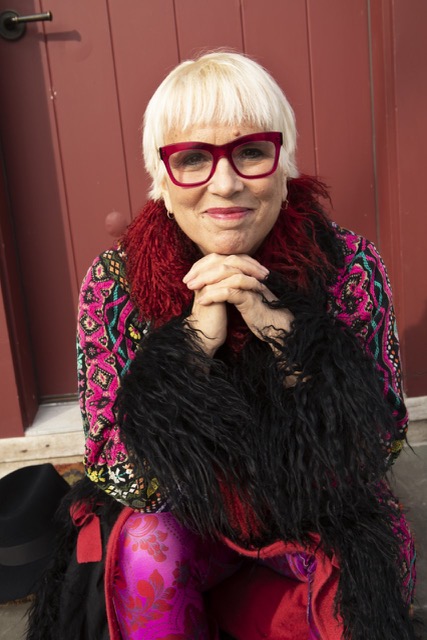 |
|
| (photo: Paula Allen) | |
V, formerly known as Eve Ensler, is a Tony Award-winning author and playwright, a ferocious feminist voice and founder of V-Day and One Billion Rising, and co-founder of City of Joy. Her play The Vagina Monologues has been published in 48 languages and performed in more than 140 countries. She is one of Newsweek's "150 Women who Changed the World" and the Guardian's "100 Most Influential Women." She lives in New York. Reckoning (Bloomsbury, reviewed in this issue) resulted from V's review and curation of her life's work.
Reckoning brings together decades of your writing in one volume. How did you decide which poems, articles, monologues and short stories to include? How did you decide which to leave on the cutting-room floor?
It was a very intense editing process as there was so much writing to review. I was so lucky to have my dear friend Paula Allen by my side, who spent many hours reading through many manuscripts and journals. But books are strange and miraculous creatures. Reckoning began to organize itself. There would suddenly be three or four strong pieces written during the period of the AIDS epidemic, or several pieces where walls--the building of them, the tearing down of them--revealed themselves as a chapter. And of course it was about the writing--which pieces held up over time, which sat well with the other pieces.
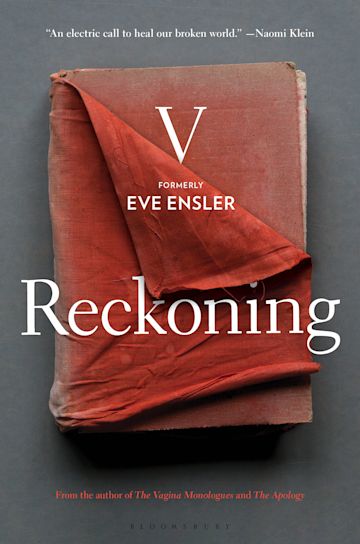 You often describe words as your allies; they freed you and welcomed you and saved you. Do you find that one medium--plays, novels, poetry, etc.--is more effective for you than another?
You often describe words as your allies; they freed you and welcomed you and saved you. Do you find that one medium--plays, novels, poetry, etc.--is more effective for you than another?
Every situation, season, event and moment calls for its own particular form of response. Sometimes a rant, sometimes a prayer, sometimes a five-year dive into the life of a freegan. I think the work of the artist is to keep being open and then even more open to that call and to following the path of the response.
One line that caught me by surprise was, "I am thinking or maybe I am unable to think, caught inside the ongoing mindfuck of this century." This book is an attempt to escape that mindfuck, and it's one many of us--whether writers and thinkers or not--feel trapped within, too. What guidance do you have for those of us who feel, as you write, "unable to think"?
If you think about the whole uber story, it's almost impossible to function: the morbid inequality of wealth, the serious backlash against women's bodies physically and legally, the desecration of our earth, the hatred against those bravely and brilliantly expanding gender boundaries, the devastating global impact of capitalism, rise of fascism and hate, and a disposable work force... and, and, and. All of it seems utterly impossible and crushing. But one person, one project, one action, one moment, one thought--you can affect, can change, can lift, can make better. I remind myself constantly to stay in this room, in this moment with these people. Here I can love. Here. Presence is magic.
In a post-Roe world, what place do you believe women's writing has in this reality? What good can it do? As the author of some of the most celebrated feminist works of all time, what have you discovered women's writing has the power to do?
I have not conceded yet to the idea that we are in a post-Roe world. I believe we are in a liminal state, and things can be reversed. Congress can still pass legislation to codify abortion rights.
I think writing is one of the most powerful political tools we have. It can educate people and inspire them and provoke them and allow them to see that they are not alone and that they are part of the majority of people who stand for abortion rights. Plays, poems, novels, monologues, stories change people and give them courage. They weave them into a vital human collective fabric. I can think of so many works of literature and pieces of theater that literally saved my life or turned it in a completely new direction.
We are witnessing an extraordinary pushback against feminism, to the point that any work with a "feminist bent" is written off by large groups of men and women alike. Does this trouble you?
Of course it troubles me, but I have been at this for so long it feels familiar in ways. When I first became known for The Vagina Monologues, men and women alike were threatened by the word "vagina" because it forced them to reckon with their own assumptions, buried desires, shame, whatever. I think we are seeing a bit of that now, too. We are a society that is being forced to reckon with what we have already done and where we are headed, and that is deeply uncomfortable. When there is discomfort, people want to take back control and they usually start with women. My writing is an invitation for people to break through what they think they know and go deeper. I don't ever go after an audience, but I try to create a world within my writing that makes it possible for the reader/audience member to find their own way in.
Like so much of your work, Reckoning is a call to action. In your opinion, what does effective action look like? Surely it can't begin and end with reading this book. What do you want readers of this book to do?
Action is the critical piece. It can come in so many forms: a commitment to a daily act of great generosity marching and dancing in the streets, being in solidarity with those who are vulnerable, supporting those in struggle financially, emotionally, politically, planting trees, defending the earth against pipelines, making art that transforms consciousness, giving what you need the most, going out of your comfort zone to stand for people and things you believe in, working to transform a system of diabolical inequality rather than stepping over people to rise in it.
A great deal of Reckoning is about pain. But this book is also incandescent with joy. How do you continue to find joy in your communities of women, even when reality itself seems set against them?
I have had the astounding privilege to travel this world and know--and I mean truly know--some of the most astounding women in the world. Women who wake up every morning and devote their lives to turning pain to power and magic. These women are women who have survived the worst atrocities and violence and poverty and racism, and still they give every fiber of their beings to transforming suffering. To know them, to be in a movement with them is to know joy, sisterhood, love and possibility. To witness young women who come to City of Joy in the Congo, to watch them come broken and lost and hopeless and then to see them, six months later, after being loved and nurtured and educated. To see how beautiful and powerful and joyful they have become, to see the leaders they have become, to know this is possible and you had a small hand in making this happen... well, what could possibly feel better? --Lauren Puckett-Pope, freelance writer
Book Candy
Book Candy
The Library of Congress and U.S. Poet Laureate Ada Limon "are embarking on a mission with @NASA & @NASAJPL to send a poem to space!"
---
Frobly-mobly, for example. On CBC Radio's The Sunday Magazine, a linguist shared words from the past that are fitting for 2023."
---
Inside a London bookstore is a fireplace that once belonged to the illustrator Pamela Colman Smith, who is responsible for a famous set of tarot cards, according to Atlas Obscura.
---
"Ecosystems of fungi and coral inhabit vintage books in Stéphanie Kilgast's intricate sculptures," Colossal noted.
Newbery Winner
2023 Newbery Medalist Amina Luqman-Dawson
.png) |
|
| Amina Luqman-Dawson (photo: Zachariah Dawson) |
|
Amina Luqman-Dawson has won the 2023 Newbery Medal and the 2023 Coretta Scott King Author Award for her first children's book, Freewater (Jimmy Patterson).
Two awards! Which call came in first, the Newbery or the CSK?
The first call came from the Coretta Scott King Award. I had no idea the award committee called winners. I felt overwhelmed and overjoyed. I think I may have screamed and cried and screamed again. It was a dream come true. I kept feeling so grateful that the judges had read Freewater. They not only read it, but they loved it. I had a sense of contentment that everything had turned out well for Freewater. Kids were going to read my book.
This made the call from the Newbery committee all the more surprising. I really lost it. There were tears of joy. I felt so very honored and humbled. My legs turned to jelly, and I fell to the ground for the second time that day. I thought, "The whole world is going to know about Freewater."
Freewater isn't your first published title, but it is your first children's book. How would you describe this book in two sentences?
Freewater is a heartwarming adventure tale of two children, Homer and Ada, who escape enslavement and find themselves deep in a swamp where they discover a maroon community--others who escaped enslavement and managed to live free clandestine lives. It's a story of resistance, strength and love in the midst of the nation's hard history of enslavement.
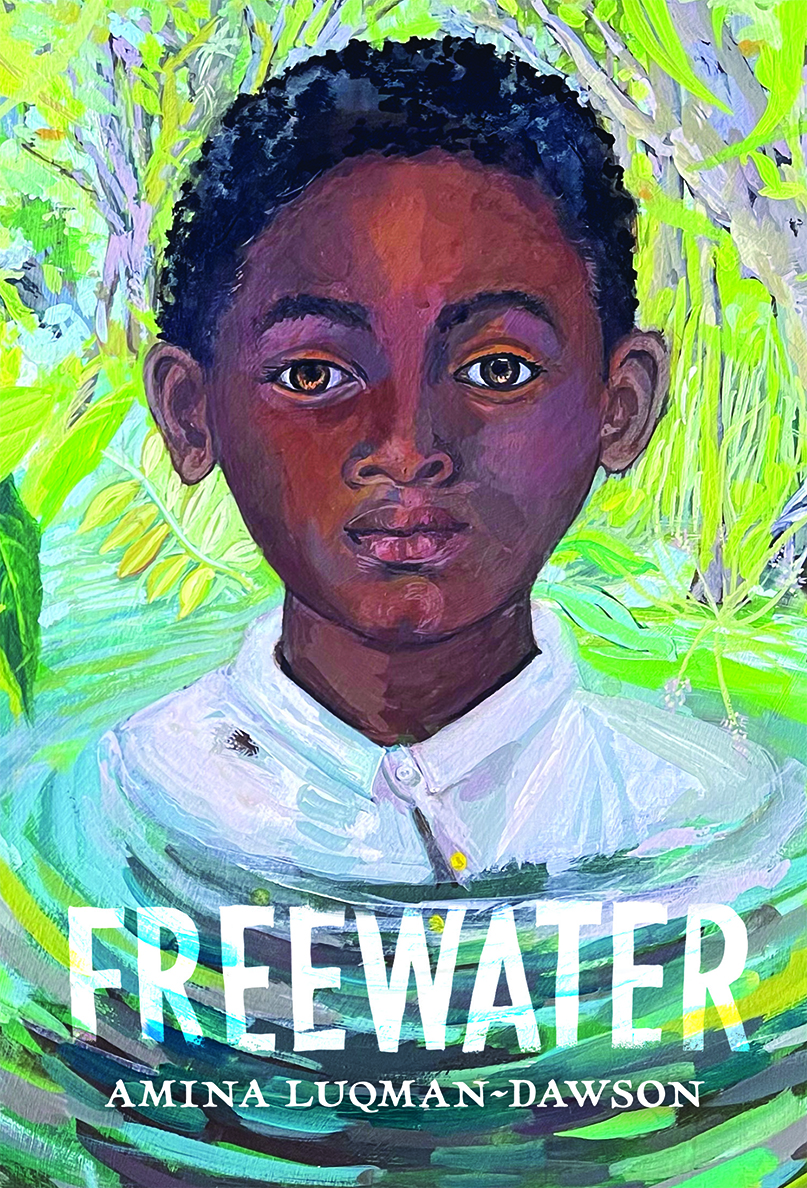 Would you tell our readers a little bit more about the history of maroon communities in the South and what made you want to bring them to life in this way?
Would you tell our readers a little bit more about the history of maroon communities in the South and what made you want to bring them to life in this way?
The Great Dismal Swamp, here in Virginia and North Carolina, has a history of being used as a place of clandestine refuge for people who escaped enslavement. Some who escaped were caught, while others used it as a stop on the Underground Railroad. Still, there were others who managed to live free in the swamp for years. They are known as maroons. The strong history of maroons throughout the Americas helped spark Freewater.
What made you want to write this book specifically for children?
Childhood is when you first learn to have characters and stories live in your heart. It's a perfect time to have readers experience the world through the eyes of other children, in this case, children who lived during the nation's period of enslavement. The connection formed with Freewater's many characters is one that can last a lifetime.
What do you hope children take with them after reading this book?
I hope they take away a sense of connection to and understanding of this historical time period. Hopefully Freewater will help create a generation that is able to shake off the awkwardness, fear and avoidance of the nation's history of enslavement that has plagued prior generations.
How did you do research for this book?
My research began at my local library, then the Library of Virginia, and the Library of Congress. I also spoke with people with expertise on the subject matter and read their works. And, of course, I visited the Great Dismal Swamp.
Are you working on anything new?
Yes, I'm working on a new book where I follow one character from Freewater and see what happens to them. Hopefully, it will be a great opportunity to illuminate another fascinating bit of history. --Siân Gaetano, children's and YA editor, Shelf Awareness
Read what writers are saying about their upcoming titles


